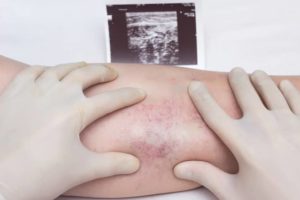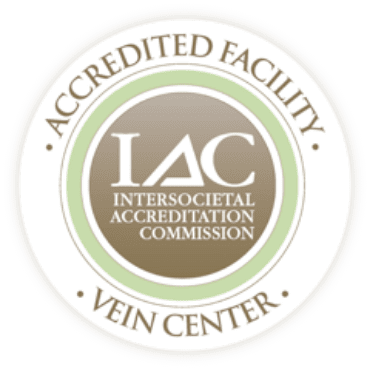One of the most common medical diagnoses associated with advancing age is osteoarthritis, also known as OA. This disease occurs over time due to years of “wear and tear” on our joints. Although OA can damage any joint in the body, the knee is among the top locations affected in the majority of the population.
For example, consider a 60-year-old woman who has been working the majority of their lives on their feet. Over time, she begins to have gradual worsening knee pain and stiffness. After several weeks or months of over the counter medications, home remedies, or ice and heat, she presents to an orthopedic clinic for further evaluation. The orthopedist then performs testing and imaging, which often includes x-rays, and diagnoses her with OA in the knee joint. Over time, after conservative therapies have been exhausted, a mutual decision between the physician and patient has been made to proceed with knee replacement surgery.
What now? You’ve just been told you will need a knee replacement and you are looking for answers as to how you may achieve the best possible surgical outcome with the least amount of complications. Vein Specialists has been working with a number of Orthopedic Surgeons to optimize their patients’ vascular status prior to joint replacement, including total knee replacement. Patients over the age of 50 often have both orthopedic disease and venous disease. We have coined the term “orthovenous” disease for this group of patients.
What is venous insufficiency?
 Arteries, pump the blood away from the heart. Veins bring the blood back to the heart. Leg veins have numerous one-way valves within them that carry blood back to the heart against gravity. Venous insufficiency occurs when the valves within the veins no longer open and close properly, which leads to the leaking of blood backwards toward the feet. This leaking of blood results in increased venous pressure in the lower part of the legs, due to the force of gravity. This may lead to signs and symptoms of vein disease such as bulging varicose veins, swelling, leg cramps, restless legs, increased urination throughout the night, heaviness, achiness, and even skin discoloration or ulceration. These signs and symptoms may occur in one or both legs and may not necessarily be accompanied by pain.
Arteries, pump the blood away from the heart. Veins bring the blood back to the heart. Leg veins have numerous one-way valves within them that carry blood back to the heart against gravity. Venous insufficiency occurs when the valves within the veins no longer open and close properly, which leads to the leaking of blood backwards toward the feet. This leaking of blood results in increased venous pressure in the lower part of the legs, due to the force of gravity. This may lead to signs and symptoms of vein disease such as bulging varicose veins, swelling, leg cramps, restless legs, increased urination throughout the night, heaviness, achiness, and even skin discoloration or ulceration. These signs and symptoms may occur in one or both legs and may not necessarily be accompanied by pain.
Why should you have my veins evaluated before a knee replacement? When preparing for knee replacement surgery, our goal as healthcare providers is to optimize the outcome of procedures we perform on our patients. Treating venous disease prior to joint replacement surgery may optimize wound healing, improve response to and compliance with physical therapy and reduce the risk of blood clots or DVT.
Call Or Request An Appointment
Contact us to schedule an appointment with our expert Vein Specialists team. We will evaluate your signs and symptoms, answer your questions, and create a personalized vein care treatment plan to relieve your leg pain and enhance your life.
Schedule Your Appointment TodayWhat are the potential vein related postoperative complications of a total joint replacement?
- Blood clot
- Persistent swelling
- Skin discoloration
- Ulceration(s)
- Slow wound healing time
- Longer rehabilitation process
- Heaviness and achiness of the legs
There are effective, minimally invasive options available to treat venous insufficiency. Venous insufficiency is a medical diagnosis and treatments are covered by most major insurance companies. The most common and gold standard treatment to fix leaky veins is a procedure called an endovenous ablation, which may be accomplished by using heat (radiofrequency or laser) or medical adhesive (Venaseal) to close the leaking veins. This procedure is performed in an outpatient setting with the use of a local anesthetic under sterile conditions. In most cases, the patient may return to normal activity soon after and even have knee replacement surgery in just a few short weeks after a venous treatment is performed.
We are fortunate to be in SW Florida with an abundance of Orthopedic Surgeons who are committed to improving outcomes for their total joint patients. Many of our orthopedic colleagues routinely consider venous disease in their patients facing total joint replacements and we are proud to work as a team to optimize their patients’ lower extremity status pre and post operatively.
Does this sound too good to be true?
Don’t wait for any of these complications to occur in order to be evaluated. If you or someone you know is preparing to move forward with knee replacement surgery and is interested in a vein evaluation, our highly trained team of vein specialists will assist you to learn more about venous disease and help you decide whether vein treatment is in your best interest. Please visit our website at WeKnowVeins.com or contact our office at (239) 694-8346 for more information or to schedule a consultation.
Request an Appointment
Please take a moment and fill out your request below and one of our staff members will be in contact within 24-48 business hours. If this is an emergency, call 911 immediately. If this is a non-emergent concern, please call the office Monday-Friday between 8am – 5pm at: 239-694-8346


